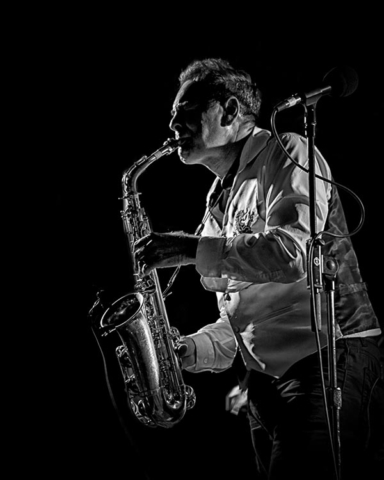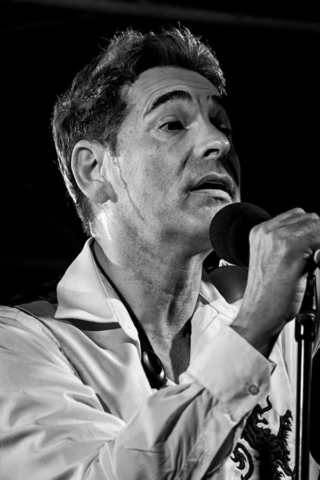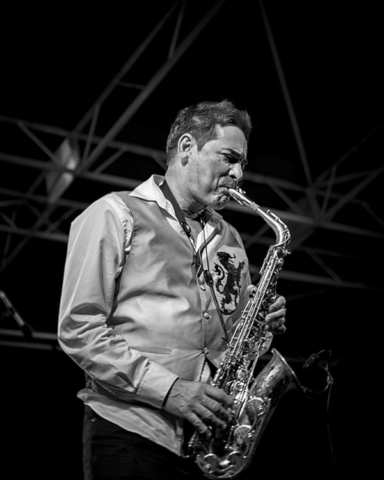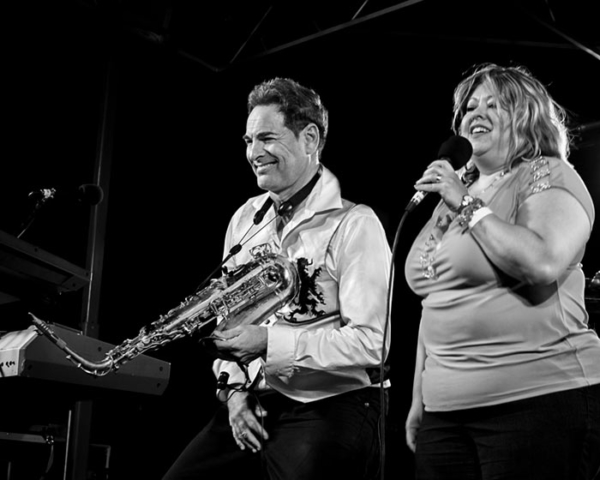There was one thing working in my favor; I could get close to the stage without guards or roadies in the way. As the night progressed I got closer and closer until my camera was on the front edge of the stage. The musicians tolerated my presence and even commented that they hoped I was getting good pictures. Which I’m sure actually meant something like ‘please go away and take that camera with you’. I persevered.
Lights were hung above the stage in the front and back. At first it looked like I could take advantage of the stage lighting if the musicians were individually lit. That was not to be. Once night fell they cranked all the lights across the stage. Worst of all it was difficult to find shooting angles without lights intruding in the frame. The hot bright circles overwhelmed everything else in the frame. I told myself the music was the thing, even if I didn’t shoot anything.
Getting in close to the stage was a big advantage in avoiding lights in the frame. Some of the time I was able to use equipment and musicians to mask the direct lights. With careful framing it was possible eliminate lights or push them to the edges. This left me with high contrast directional light on the performers and very dark backgrounds. It reminded me of jazz photos from the 50s where photographers popped flash bulbs close to the musicians. Only the performers were lit, everything outside of flash range being completely black. Excellent, I was channeling early William Claxton, at least in my mind.
Most of the RAW files shot that night have remained unprocessed until recently. My post processing skills were not up to the task of working with the extreme lighting conditions. Now I am able to produce decent finished images from some of the frames. Over time I’ve learned a great deal from the images shot that night. They have helped me understand the dynamics of working in an uncontrolled performance environment. In the end that is the real value of my night’s work.




